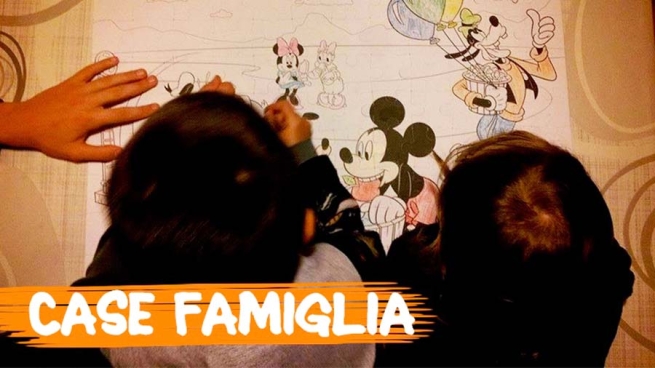Children coming of age who leave the child protection systems have to add the burden of having to be totally autonomous to the already difficult situation young people are experiencing at this time. Autonomy for these young people means having a job first of all, which is not taken for granted in a country where youth unemployment is at 20.1 per cent and the Neet (young people who do not study and do not work) phenomenon records numbers that are among the highest in the whole of Europe: in Italy, 1 out of 5 young person between 15 and 29 years of age neither studies nor works.
In order to try to respond to this situation, by accompanying young people who have been taken in by residential communities and young people who come from situations of hardship and fragility, Salesiani per il Sociale APS promotes work and vocational opportunities which support thousands of young people every year, many of them in the most fragile Italian suburbs.
‘Today young people are often fatherless despite the fact their fathers are alive’ - this is an increasingly widespread phenomenon. Parental absence is very strong and often there are fathers and mothers undergoing criminal proceedings, or more generally they do not have the possibility to take care of their children,’ said Fr Francesco Preite, President of Salesiani per il Sociale. Every child up to the age of 18 is looked after by social services and entrusted to foster homes; each one has an individual education plan and is followed up by educators - as well as by psychologists and a network of professionals and volunteers - and is helped in the development of his or her skills. But it is an important path that is interrupted once they turn 18
This is how the Officine Don Bosco’project came about, which allows young people to be gradually accompanied towards autonomy. It starts with formation, with professional courses, then apprenticeship until the possibility of employment in the company. It is a virtuous path that requires network collaboration, starting with local companies. The possibility of having a job changes the lives of these young people, as happened to Ousmane.
Having arrived from Zambia in Turin at the age of 17, without his family, for months he was in a dormitory: ‘I didn't even know how to move around the city, I didn't know the streets. I heard that in this Salesian community they helped boys in difficulty and I went there. They took me in, I studied and when I was 18 I did a course. I did an internship in a company and started working as a graphic designer. Today I have a contract, still as a graphic designer, in another company, in Chivasso, and a house of my own. I can afford to pay rent every month. My life has changed completely'.
Negin, an Afghan girl, also has an interesting story to tell: with the Taliban in power, schools and universities were closed for girls. She managed to escape, arrived in Italy, was taken in by the Salesians and is now graduating in economics. ‘She is realising her dream,’ adds Fr Preite.
In addition to job placement, Salesians for Social - thanks to the support of benefactors - also manages to offer accommodation: ‘We have flat groups, i.e. houses that we offer for a short to long period to young people who come out of our circuits. Many of the young people who turn 18 do not know where to go and we give them accommodation, at least for a period, until they find a job and their own place’.
The young men and women who have been taken in by ‘Salesians for Social Work’ are often disillusioned, having already been through many trials in what should have been a time of serene and happy growth. For their part, the Salesians and those who collaborate with them strive to give these young people a second chance, to make them dream again, to help them build a future and be free.


